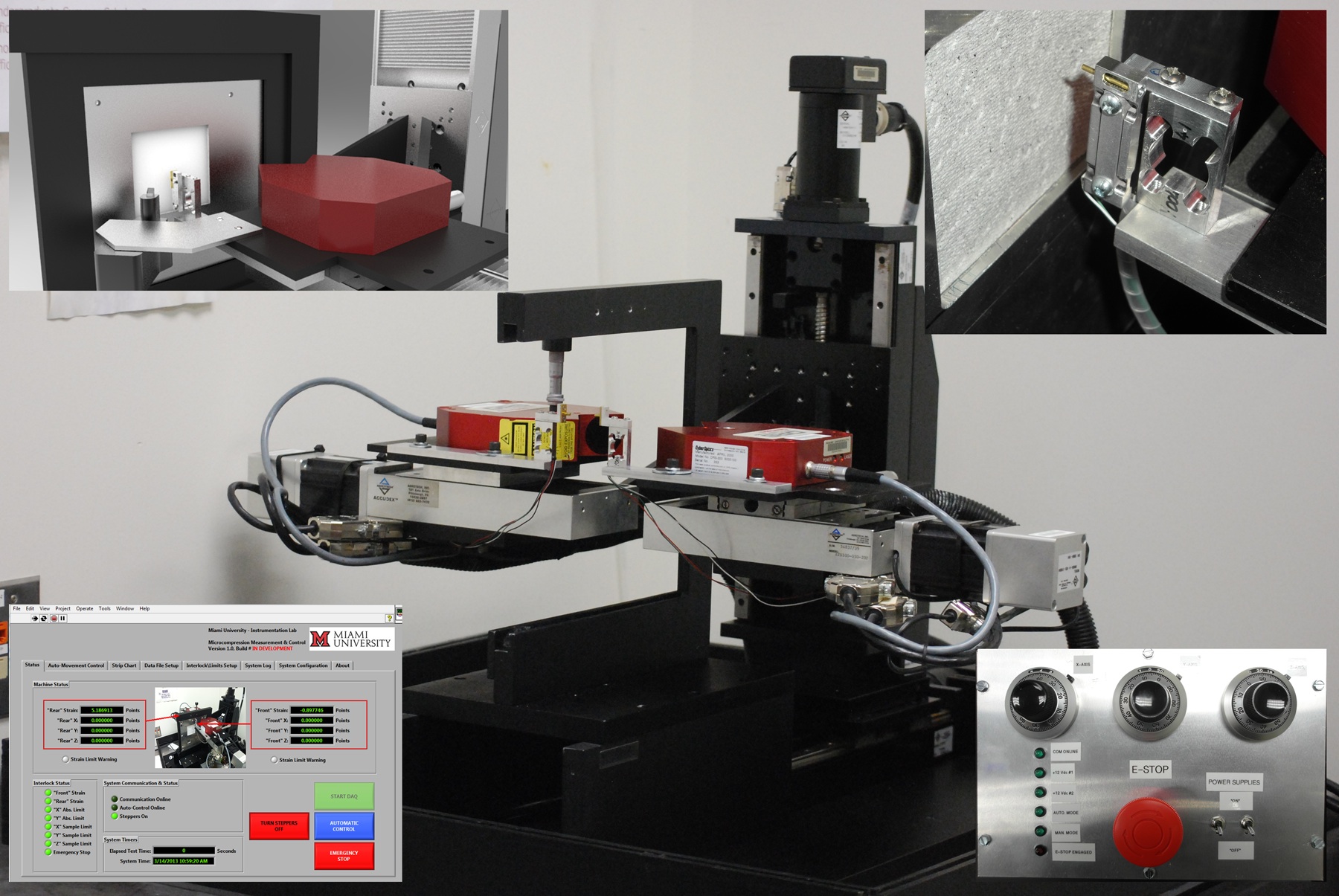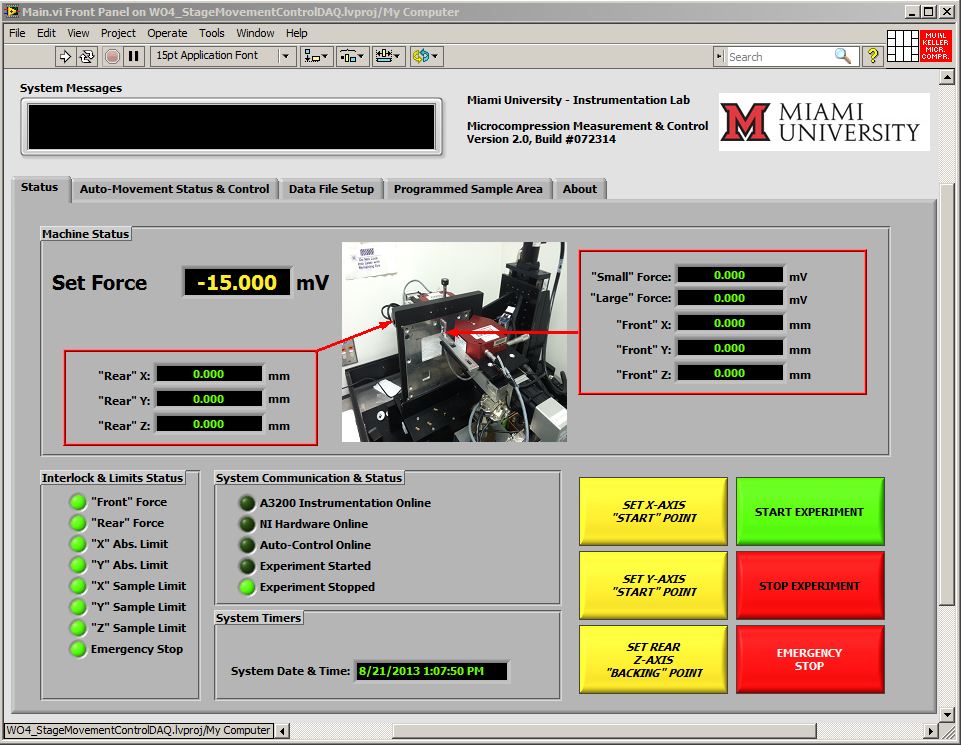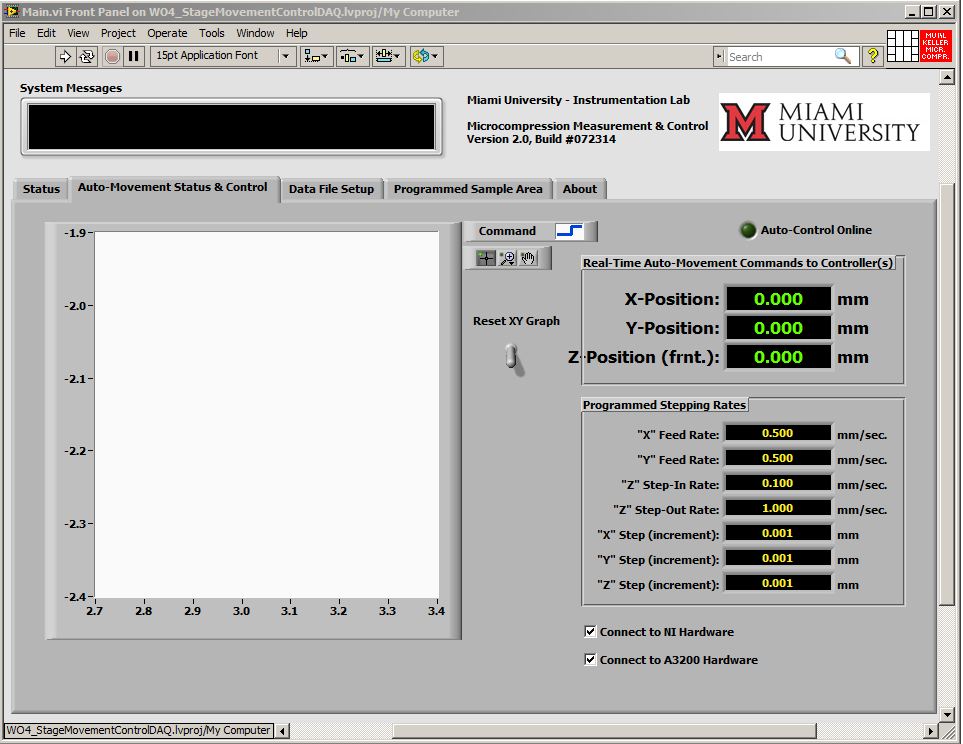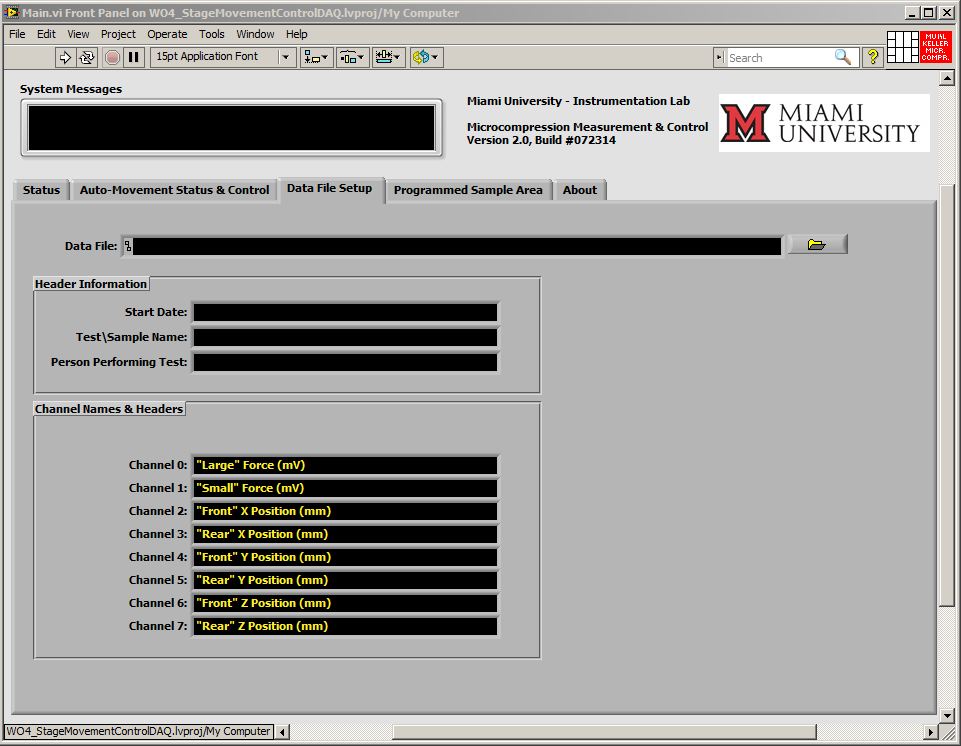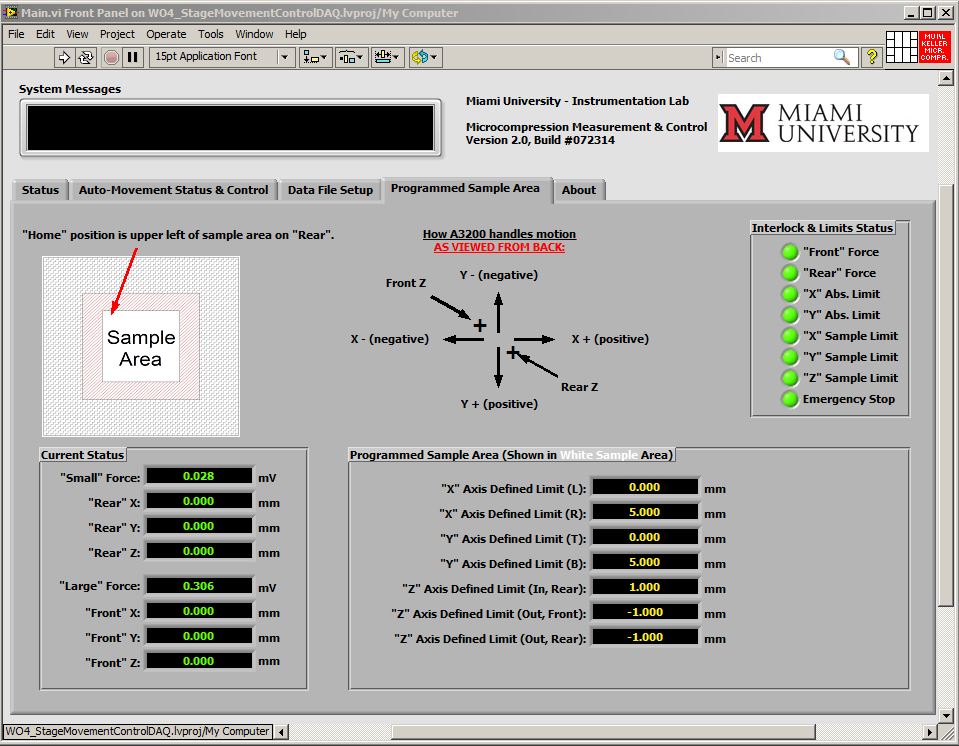Instrumentation Laboratory Project Page
Project: Microcompression System
Department: Chemical, Paper, and Biomedical
Engineering
Primary Investigator: Dr. Steven Keller
Purpose:
The behavior of low density fibrous webs, such as paper towel and
polymeric nonwoven materials, under localized compressive force is of
considerable interest for end use performance, especially
the durability
of embossed features and for softness to the touch. Related to, but not
the same as micro-indentation of ductile and plastic materials,
micro-compression seeks to characterize the compression
of embossed and
through air drying features with in-plane dimension of several mm and
out-of-plane height of < 1mm. This instrument was developed to
measure a wide range of compressive forces from
10 mN to 2 N while
simultaneously imaging the collapse of the structure. The design
requires a unique tandem configuration of low and high range load cells
to which the probe tip is affixed. The probe and
backing plate are
controlled to 0.5 μm steps for smooth strain rate and precise
measurement of Z-directional separation distance. In-plane (X-Y)
positioning of the probe tip is controlled to 1 μm within a
100 mm
square operating window. A sophisticated user operating system based on
NI LABView allows complete control of experimental execution, data and
image collection and storage, and protection of
the delicate sensing
hardware. Videos showing force as a function of probe position are
easily compiled from the acquired results. The instrument is primarily
for graduate research, but has been operated
by undergraduate students
as independent research projects.
IL Comment: Researcher required a way of
detecting extremely small forces being exerted during the compression
of paper towels to study their compressibility characteristics, using a
stage movement system
that is already in their lab (stage movement
steps are in the micro-meter range). Their previous system was
unreliable, as it did not have any safety mechanisms in place to
prevent damage not only to their test
samples but also the expensive
load cell sensors being used for these experiments.
Our design uses a LabVIEW based approach that monitors and controls the
position of each stage (front and back) on 3 different axes (X, Y, and
Z). The Z stage (where the load cells sit) also includes force based
limits that if the set limit is exceeded at any time the stage retracts
away from test sample protecting both the test sample and the load cell
from overloading damage. This one improvement has and could potentially
save thousands of dollars in load cells. The load and position data is
saved to disk for further analysis.
The design also includes an automated movement mode which will run
through a user defined program of machine movement and data acquisition
(DAQ) which allows for experiments that could last several days.
To
make everything work with the stage controllers that the researcher
already has, a custom hardware interface box was required to be
designed and constructed by the I\L.
Cost to researcher: $644.72


